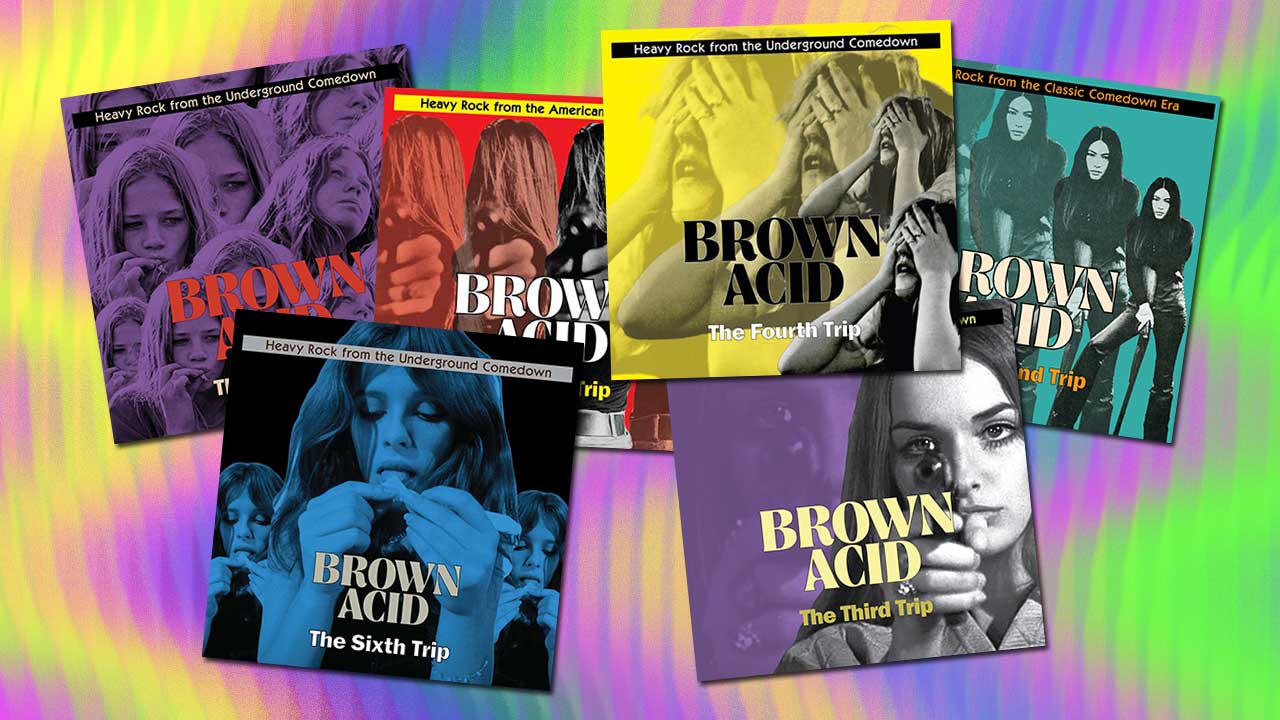Lance Barresi is the kind of man you'd like to go crate-digging with. The proprietor of Permanent Records in Los Angeles, he's also than man behind Brown Acid, a lovingly-curated, mind-expanding series of albums that take the Nuggets and Pebbles template and re-jig it to unearth the great lost bands of hard rock, heavy psych and proto-metal.
Bands like The Zekes, whose Coming Back, nine minutes of howling blues rock retrieved from the original 1/4 inch tape, appeared on the third volume. Bands like Rocking Maniac, whose Rock And Roll Man is a glam rock stomper of the highest order. And bands like Heat Exchange, whose Inferno appears on the latest in the series, The Sixth Trip. It's four minutes of frantic garage rock with an enormous riff and some screaming sax that sits somewhere between The Doors at their most fiery and The MC5.
"I know what the appeal of these albums is for me, and I assume it's the same for everybody else," says Barresi. "It's being able to hear bands that sound similar to the classic rock of the day but go one step further... and do it so well. It's incredible that they didn't have much success. Generally speaking, people like an underdog, and when you can find 10 underdogs piled onto one album, and the records are actually really listenable, it's kind of phenomenal! The series is all bangers, all the time, and I don't water it down with a bunch of nonsense!"
The Brown Acid series began as an extension of Barresi's club nights, where he'd plough the money he was paid for DJing back into his set, scouring record shops for increasingly rare vinyl he could play the following week. After exhausting all the material released by the major labels he started to explore the world of private pressings, and began to track down the members of bands who'd spilt up four decades ago, realising he was gathering enough material to compile some seriously heavyweight albums.
"I have to reach out to the bands and that's the hardest part and what we do with the series," says Barresi. "Anyone can take a copy of a 45 or take a digital file from the internet and put it on an LP, and people have done that in the past. Most compilations like Brown Acid are bootlegs, but Brown Acid is fully licensed. The bands get paid, and they get the recognition they deserve."
Not everyone welcomes the attention, of course. For some bands who split up under acrimonious circumstances decades ago the acrimony remains, and re-hashing old beef isn't something they're interested in doing. For most, however, Brown Acid is belated recognition that they might have really been on to something.
"There's a pretty consistent story to a lot of these bands," says Barresi. "Most of them had big aspirations and took the time to form bands, to rehearse, to get into the studio and actually record a 45. Most of the people in the bands I've talked to thought they had a shot and then for one reason or another – and each band has its own unique story – most of these bands consider themselves the real life Spinal Tap. I've heard this from numerous people. They were the band that should have been, but were in the wrong place at the wrong time. And then their drummer spontaneously combusted, or whatever."
Much of this combustion appears to have taken place in Youngstown, Ohio, the surprising epicentre of obscure 1970's hard rock. It's a town that suffered from the demise of the steel industry during the decade (Bruce Springsteen's Youngstown, from The Ghost Of Tom Joad, was written about the city), perhaps providing the impetus for the town's youth to form bands.
"I've talked to guys from that part of the country, and they can't really pinpoint why this is. There was a studio there called Peppermint [opened in 1971, and still recording today] that recorded a lot of these bands. It was a working class city, and there's just a weird amount of great bands and records that came out of that part of the country. Even LA and New York don't seem to have that kind of thing happening. When I go to write the city name in the liner notes it's like, 'yep, another Youngstown band.'"
Oner question remains. With six volumes of Brown Acid under his belt, does Barresi have a favourite track?
"That's like asking me which of my children I favour the most." he laughs. "I'm really proud of each and every record, and I can't pick one song. I can barely pick one volume! I think the quality is spread pretty evenly among the volumes. Some tracks are better than others, but each trip has at least five Incredible tracks that are just out of this world."
Brown Acid: The Sixth Trip is out now on RidingEasy Records.

